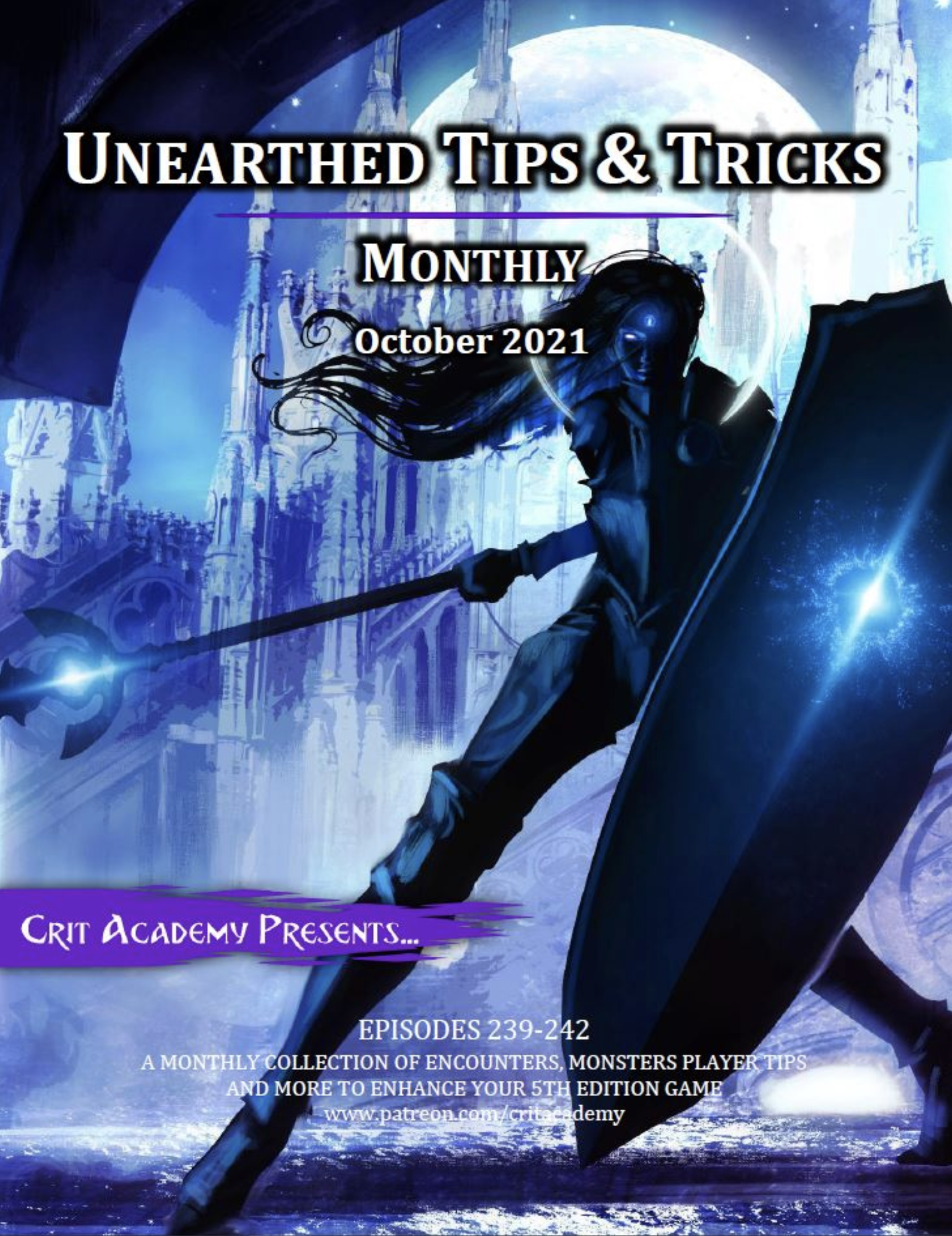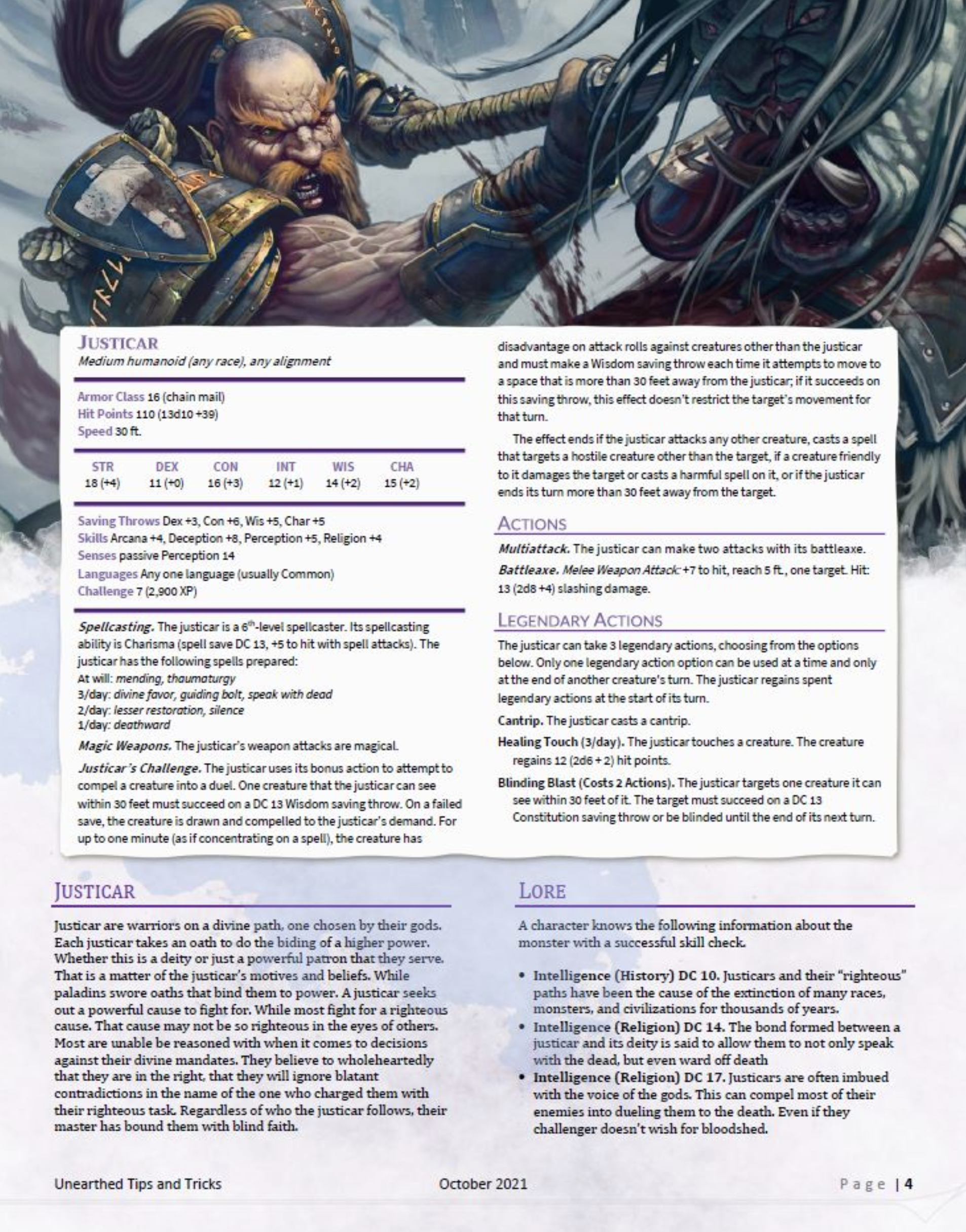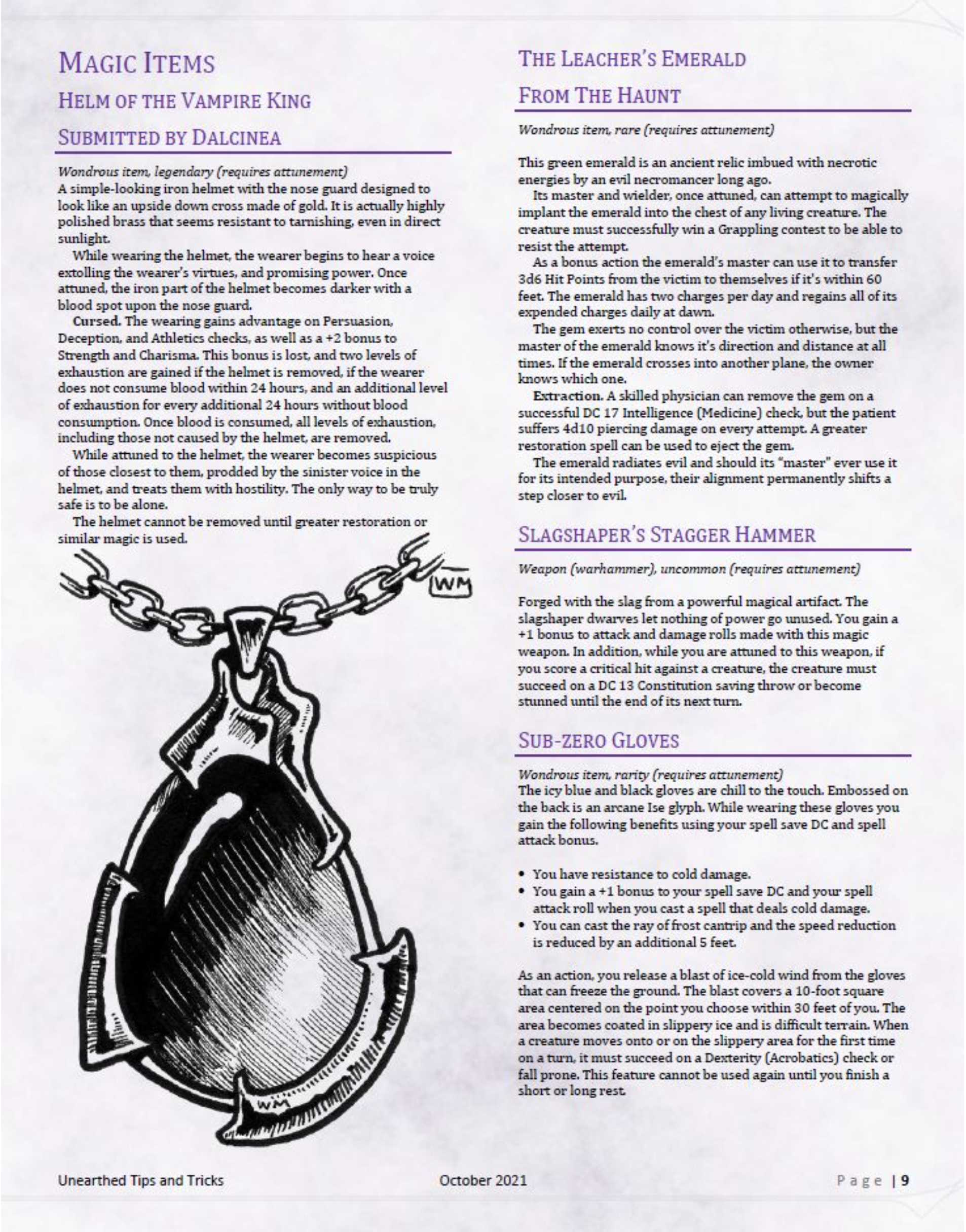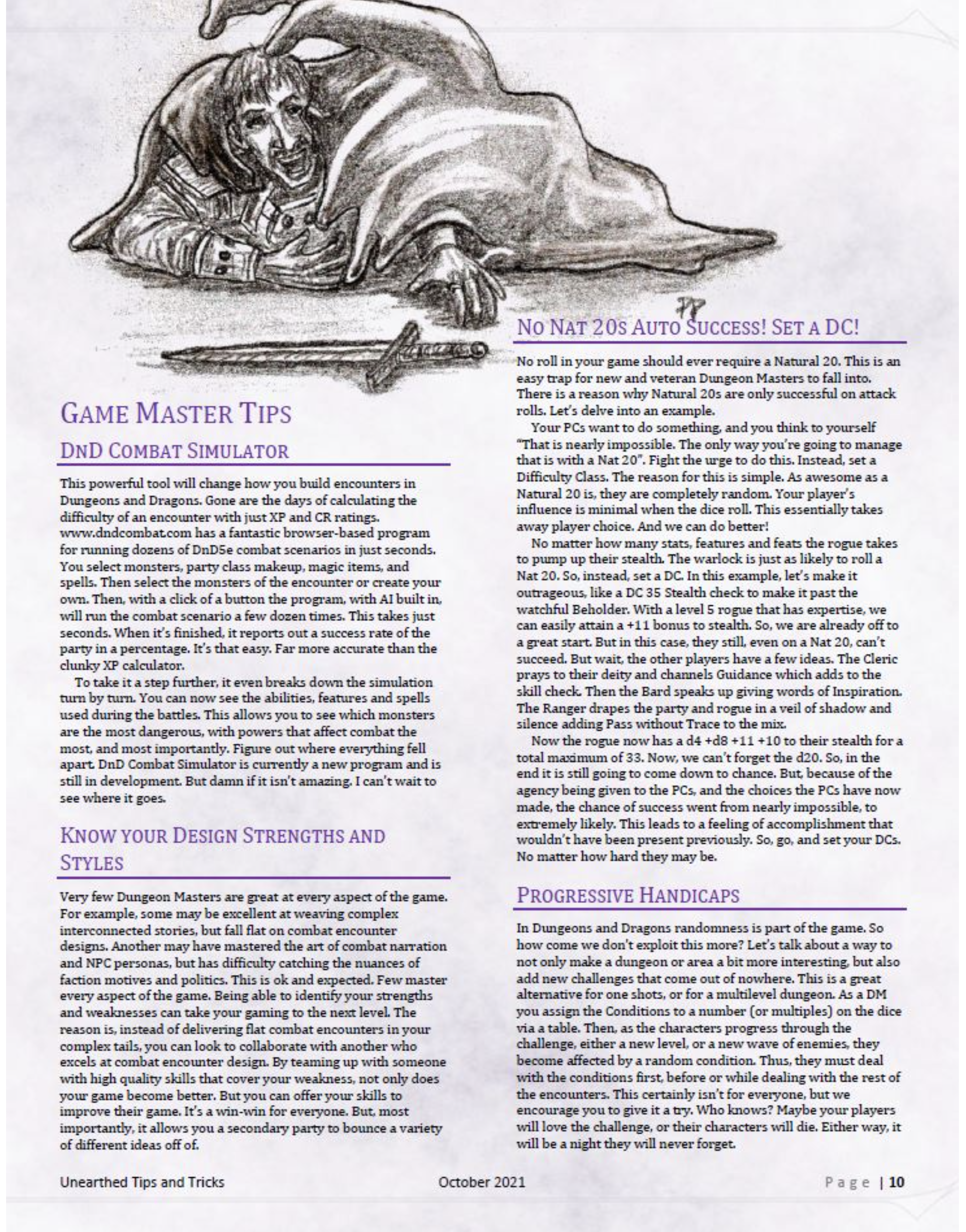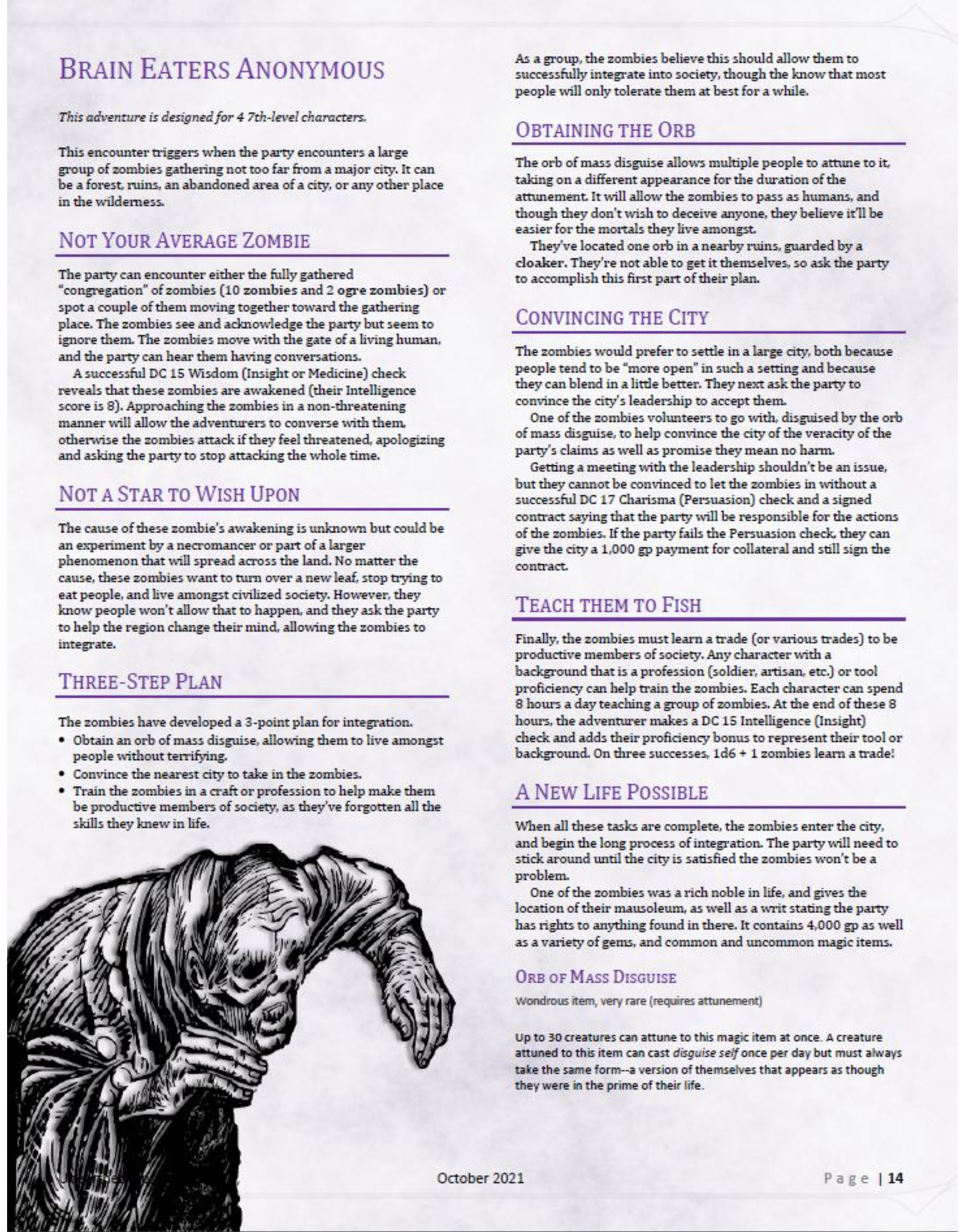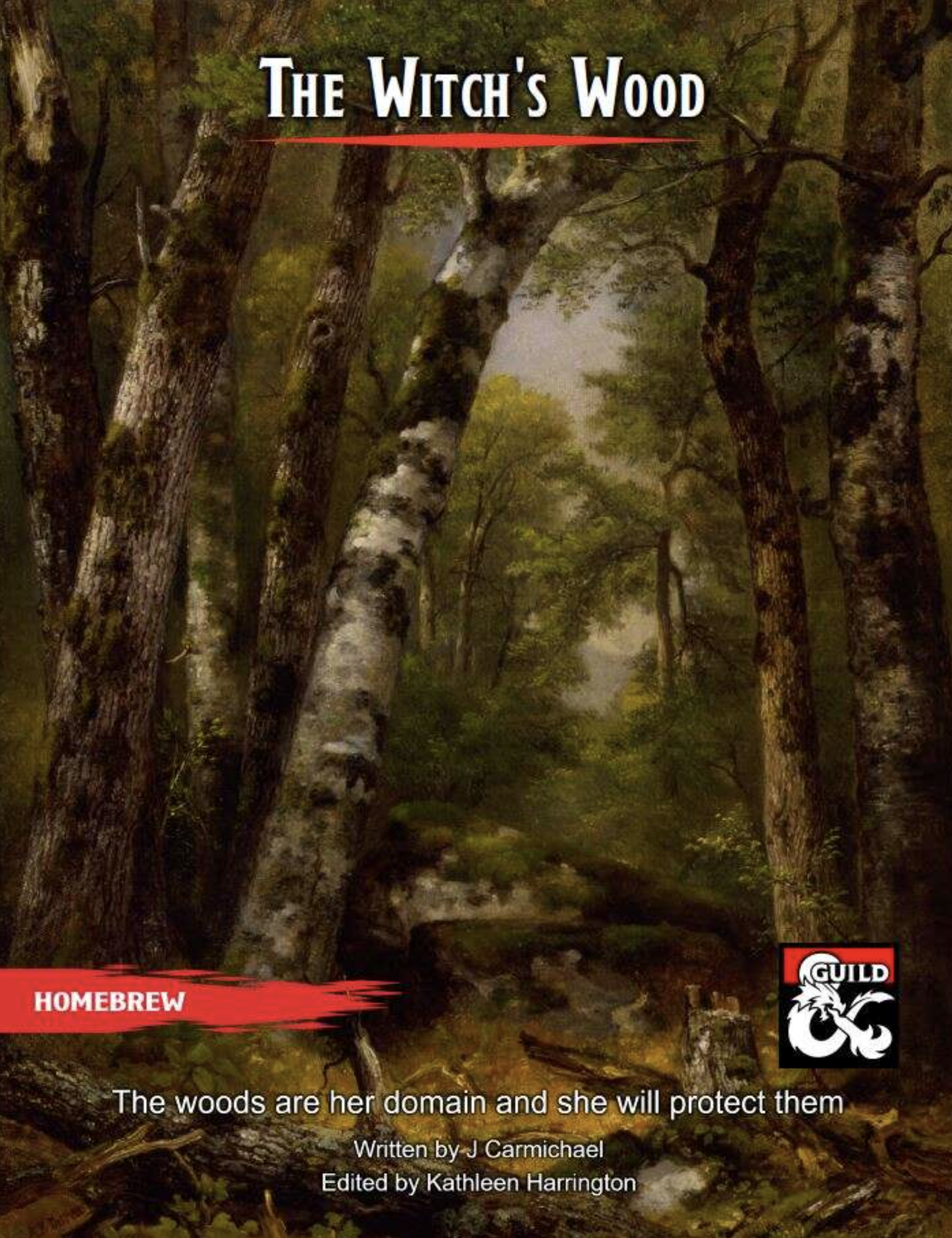D&D: Alternative Race Lore for your Setting
Click here to get Notified and Join us Live Sundays @ 7pm Eastern!
Dungeons & Dragons are the pioneers in the role-playing game (RPG) world. Created in 1974 by game designers Ernest Gary Gygax and David Arneson and published by Gygax's company, Tactical Studies Rules (TSR). Since its inception, it has undergone uncounted changes both through mechanics and lore. One of the key aspects of the game falls to a player's choice of race. Your choice of character race provides you with a basic set of advantages and special abilities. If you’re a fighter, are you a stubborn dwarf monster-slayer, a graceful elf blademaster, or a fierce dragonborn gladiator? If you’re a wizard, are you a brave human spell-for-hire or a devious tiefling conjurer? Your character race not only affects your ability scores and powers but also provides the first cues for building your character’s story.
Related Article: 10 D&D World Building Tips
The release of Tasha's Cauldron of Everything introduced custom lineages that can allow the player to customize this from a mechanical standpoint. One thing that has always been consistent (albeit with small changes) in the history of those races and the way they interact and are perceived by others in the world the game is set in. The most famous of which is Faerun in the Forgotten Realms. In this, the lore and style of the races have been pretty consistent. Well, in this episode we want to mix that up.
Popular Tiktoker and streamer Aelx Bomb joins us as we provide new and fresh looks at some of our favorite races. Providing them with new lore and themes for you to drop into your Dungeons & Dragons stories and campaigns.
Let's take a look at one of our alternative lore races, the gnome.
Art: Kithkin Compliments of WoTC
Gnomes are small sly and brutish creatures. They view other sentient races and creatures alike as objects of amusement and pleasure. Nicknamed “Furian” for their savage and brutal nature. The kindest among the gnomes are killers and monsters, while the worst are torturous and terrifying, bloodthirsty killers. Many Gnomes enjoy toying and tormenting their victims before slaying them.
Those who have encountered a furian say that they get some sort of intoxication from the fear their victims release. Because of this, they will stalk their prey, taunting, promising they just want to play and won't hurt them. That they just want to talk. Even while sticking a blade into their prey with a smile and gleeful laughter. You can hear their pleasure in their giggles, laughs, and cackles as they stalk you. When furian gather and hunt in groups, the echoes of their maniacal laughs can send a shiver and chill down the spine of even the most courageous of heroes. Like a pack stalking hyenas, if you hear their cackles, it's best to getaway. Though, some believe that once a furian has chosen you as a target, it will stalk you until either it dies, or you.
Many stories have come from encounters with the gnomes, the furians. Even a child's poem is formed to give warning. “Beware the echoes of a savage joy, otherwise you’ll end up a tormented toy.”
Get a FREE copy of the best-selling Challenge Accepted!
Make sure to subscribe to our newsletter so we can help you on your future adventures. Newsletter subscribers are also entered to win cool prizes each and every week. Check out our fellowship members for more great content. Visit our Youtube channel for our show episodes, actual play episodes, and our tips & tricks videos. Support us on Patreon to get weekly Dungeons and Dragons loot!
Character Concept: Aneal Vilejaw, Male Gnome
Description: He wears a grey costume with arcane symbols on his torso. He carries a battered tree branch and tarnished pickaxe as well. He has dyed his greying hair a little too much giving a sharp chestnut color. His otherwise smooth face and balding head is marked with dozens of tiny scars.
Personality: He believes mankind has become decadent and spoiled by the march of civilization and an end should come to life as we know it. When triggered he is a bloodthirsty maniac, stopping at nothing and killing everything in the area.
History: Vilejaw lived on a farm with his father, near the main road leading to a nearby town. Aside from being a slave or a gladiator, there isn't much legitimate work for gnomes in Aneal’s homeland. Aneal decided to take the middle way and become a bodyguard for some shady people. Recently he has begun working with bootleggers and crooks.
Motivation: His blood pushes him to battle. While he can stave it off most of the time. He seeks a way to quench or sate the “thrill” of battle.
Monster Variant: Furian
Origin: Deep Gnome
Lost/Changed Features: stone camouflage, innate spellcasting, war pick,
New features:
Skills: Deception, Intimidation, Stealth
Maniacal Laughter (2/Day). As a bonus action on its turn, the furian can enter into a fit of maniacal laughter that lasts for 1 minute. While laughing, the furian gains advantage on all melee weapon attack rolls, but attack rolls against it have advantage. Additionally, if the furian drops to 0 hit points while laughing, it must make a Constitution saving throw with a DC of 5 + the damage taken, unless the damage is from a critical hit. On a success, the furien drops to 1 hit point instead.
Butcher’s Knife. Melee Weapon Attack: +4 to hit, reach 5 ft., one target. Hit: + 4 (1d6 + 2) slashing damage, and the target loses 2 hit points from bleeding at the start of each of its turns for six rounds. A creature can take an action to staunch the bleeding on itself or an adjacent ally with a successful DC 12 Wisdom (Medicine) check. The bleeding also stops if the creature receives any magical healing.
Legendary Actions:
The furian can take 2 legendary actions, choosing from the options below. Only one legendary action can be used at a time and only at the end of another creature’s turn. The furian regains spent legendary actions at the start of its turn.
Detect. The furian makes a Wisdom (Perception) check.
Imposing Laughter. The furian laughs, cackles and intimidates its enemies. Any creature within 30 feet of the furian must succeed on a DC 12 Wisdom saving throw or be frightened of the wyvern until the end of their next turn and the furian gains 1d4 +1 temporary hit points that last for 1 minute.
Ad: Manscaped! Never lose your dice in the forest again! Your dice will thank you!
Get 20% OFF + FREE Shipping with promo code CRIT at MANSCAPED.com!
#ad #manscapedpod #MANSCAPEDPartner
Encounter: The Howling Skull (Inspired by Tiktoker The Plot Doctor)
The characters arrive in the small coastal town of Twin Rivers. At the center of the city is a massive spike-like totem. At its peak is a large skull of an unknown creature. A character who succeeds on a DC 18 Intelligence (Nature) check is able to identify the skulls as belonging to a long-neck sea creature known as a plesiosaurus. If the character fails the check by 5 or more they misidentify the skull as belonging to a giant constrictor snake. A character with the sailor background automatically succeeds this check.
Characters hear rumors that the monstrous beast known as the Naavrudra, or boat eater has been attacking and destroying fishing boats for years. The locals hired an adventuring party to destroy the beast about a week ago. Starting a few nights ago, the area started rumbling as the horn resonated with an eerie cry. The area is covered in mist. Now the number of fishing boats that disappear has increased at an alarming rate.
The towns elder, Nicholi Hartfin, a commoner believes that another Naavrudra must be present. Likely the mate of the one they slain. That would explain the sudden increase in attacks. The characters are hired to take out the second one to end the loss of the life the fishermen are experiencing. He provides anything the characters request within reason.
Once the characters navigate and locate, or set up a trap and lure the creature. They learn the truth. The bellowing sound isn’t coming from the skull in town. It's coming from the creature's parent. A much larger Adult Naavrudra (use giant shark statblock). Every night since the creature’s younger offspring was killed, it bellows and releases a low pitched parenting call. When it's close enough to the town, the skull resonates at the same low frequency causing objects around it to tremble. The mist is a regional effect from the Adult Naavrudra when it is within a mile of the town.
Magic Item: Nature’s Poultice
Wondrous item, common
This wooden container is 3 inches in diameter, contains 1d4 + 1 doses of a thick mixture that smells faintly of autumn leaves. The container and its contents weigh ½ pound.
As an action, one dose of the poultice can be applied to the skin. The creature that receives it gains 2d4 +2 temporary hit points that last for 1 hour and ceases to be poisoned.
Dungeon Master Tip: Swift, but Deadly Combat
It’s pretty well known that combat in most RPGs can take a ridiculous amount of time. This has been a thing for a long time. The nature of turn-based combat makes it slow. Let’s assume you’re running a game with 5 players and a Dungeon Master. If each person starts and finishes their turn 1-2 minutes and the DM spends 2-3 minutes on their turn, you’re looking at a single round of combat running a minimum of 5 minutes up to and past 10 minutes. While this is certainly part of the game. Who doesn’t enjoy having more combat encounters per session? While there are a myriad of ways to handle this, in the end, it comes down to the roll of the dice. If an entire turn passes and nobody hits the big bad, well then you’re going to be stuck in combat for a lot longer.
Reading through some old Dungeon Magazines. I found an interesting concept that I think could really work. It simply revolves around turning all attack misses into hits that do the lowest damage an attack can do. Now, this immediately makes the game go faster, as each attack will land in a loss of enemy or character hit points. Since hit points aren’t meat points, this can easily explain the pushed battle and trading blocked blows back and forth. This concept is great because it acts almost like a consistent countdown timer. So long as someone isn’t incapacitated, no matter how many misses, the battle is being brought closer and closer to its end. This would likely work best in a battle with many components, especially weaker minions, cause they are likely to be brought down, meaning fewer turns spent on the character.
While I haven’t used this yet, it certainly is appealing for groups who want to have a lot of combat encounters in their D&D games. I’m certainly gonna give it a go during the next one-shot I run.
Related Article: World Anvil Campain Manager
Player Tip: Character Themes
Developing your character into someone who has a rich story can be a fun and rewarding process. You likely have an idea of what race and what class you want to play, but you might have only a general idea of what your character’s life was like before you start playing the character at the gaming table. A theme can help you flesh out your character and provide some interesting options for developing his or her background.
Your character’s theme is a career, calling, or identity that describes who he or she is in the world. Just as race and class create basic definitions about who your character is, the theme adds a third character component to help refine your story and identity. This can expand on your background in much more detail. For instance, a Sage background is a studied individual. You can add a theme to your character to add complexity and make it clearly visible to all. In the case of the Sage, maybe the character takes an express interest in magical potions. This could explain why they became a class that can channel spells such as a druid, sorcerer, or wizard. If the player decides to be a wizard, you can flavor spells as mixed concoctions. Allowing you to add the theme to your spells. For instance, casting a fireball may just be throwing a vial of explosive liquid. Or a charm person effect could arise from removing the stopper on an intoxicating fragrance that comes from a corked glass container.
A theme can embrace characters of different classes as well. For example, many alchemist characters are wizards, but a rogue with a particular interest in providing his or her own means of disappearing quickly might pick up a few formulas and learn how to make them. Ala, a ninja smoke bomb used when they take the hide action.
RPG Phatloot Giveaway: The Witch's Wood by Jordan Carmichael
A Tier Two adventure module for Dungeons and Dragons 5th Edition.
A small logging village is coming under attack by animals and plants alike, none can enter the woods safely. Except, that is, for a little girl who can come and go as she pleases and seems to have picked up some odd nursery rhymes along the way...
Winner: ferretsnicker20
Didn't win? Sign up for our Newsletter and be entered to win our weekly giveaway.
Thank you for reading our blog. If you enjoy the content and want to support us, visit our store or follow us on social media, join us on discord, youtube, and leave us a review.
Keep your blades sharp and spells prepared heroes!
If you're interested in advertising with us, click here to learn more.
*Crit Academy is an Affiliate of Amazon, DMsguild and DriveThruRPG*



